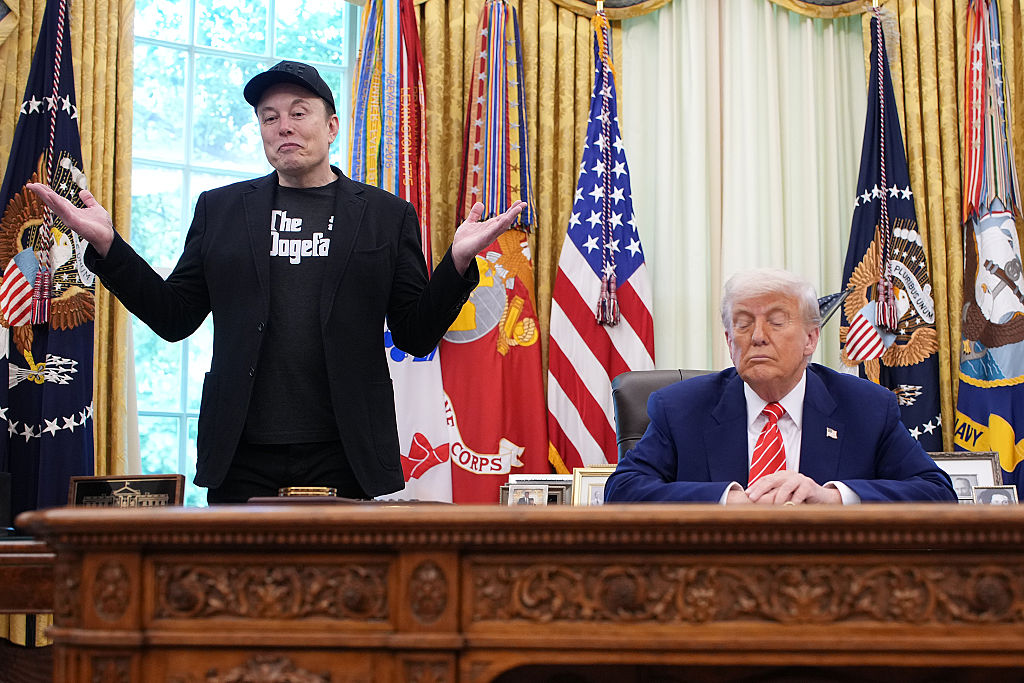Hamas’s heinous attack and the robust Israeli response serve as a useful reminder of well-known double standards on the activist left. In an echo of those Republicans who are unable to see Ukraine’s defense against Russian aggression with any moral clarity — framing it instead as a “territorial dispute” — some commentators have been reluctant to condemn Hamas’s terrorism, at least not without first appropriately “contextualizing” it.
The attack, however, also uncovered a more recent and worrying trope taking root on both sides of the political spectrum: the idea, implicit or explicit, that the United States can only focus on just one issue at a time. The Biden administration, keen to turn the page after the quagmires of Iraq and Afghanistan, has treated the Middle East as an afterthought. Hence the rushed withdrawal from Kabul and the reflexive effort to revive Obama-era Iran deal — even at the price of rattling traditional US allies in the region, or empowering Tehran to double down on its backing of Hamas and Hezbollah.
There are those on the right, like former Pentagon staffer Elbridge Colby, who argue that backing Israel and/or confronting China is non-negotiable — and that doing so must come at the cost of Ukraine policy. Senator Josh Hawley has said that “Israel [was] facing an existential threat. Any funding for Ukraine should be redirected to Israel immediately.”
For a tiny fraction of the Pentagon’s budget, Ukrainians are degrading Russia’s military so that it cannot threaten NATO for a generation
While some trade-offs undoubtedly exist, the United States cannot just focus on a narrow subset of critical issues facing the world — particularly not if those are connected. If recent events demonstrate anything, it is that there is an international coalition of revisionists — an axis of evil, if you will — eager to replace what remains of the “rules-based international order” with barbarism and the principle of “might makes right.” Those forces are on the march in Ukraine, the Middle East, and can soon set fire to the Indo-Pacific.
For America and its allies, the only effective strategy is not to pick our battles carefully or exercise restraint. It consists of nipping our adversaries’ efforts in the bud wherever they stick out their heads — in Eastern Europe, in the Middle East, and in the Indo-Pacific. Being selective in responding is not a display of prudence nor of a nuanced understanding of the relative urgency. Instead, it signals weakness, thereby encouraging more bad behavior from our enemies.
Being the world’s policeman is expensive, of course. However, if there is a one thing worse than taking that role, it is for Americans to wake into a world that has no policemen — or into one that is policed by Iran’s mullahs, Vladimir Putin and Xi Jinping.
By default, that is the world that the United States is bound to get if they retreat from this conflict. Ignore the isolationists’ fairytales: it is US leadership, not its absence, which encourages our allies to step up and do more. Nobody was in a position to fill US shoes in Afghanistan when Biden headed for the exits in the summer of 2021. But Ukraine has demonstrated what happens when the US steps up. The magnitude of US assistance to Ukraine — which, in many ways, still fails to rise to the occasion — has changed the calculations of Europeans. Already, EU institutions alone provide more than three times as much humanitarian and financial aid to Ukraine than the United States does. Jointly, European governments and Brussels give almost twice as much military and non-military aid to Ukraine than Washington. Countries such as Poland, meanwhile, are far exceeding their defense spending commitments. Even in Germany, the Zeitenwende might be arriving slowly, but it is no less real.
For Ukraine, the talk of choices and trade-offs is misleading. For a tiny fraction of the Pentagon’s budget, Ukrainians are degrading Russia’s military so that it cannot threaten NATO for a generation. None of the major weapon systems transferred to Ukraine are needed either by Taiwan or by Israel and, in fact, their replacement in US stocks by more advanced alternatives has been long overdue.
Again, none of this suggests that a US leadership is a free lunch. Washington’s defense budget is inadequate for the task. There are a host of domestic policy challenges — from its southern border and the fentanyl crisis to rising costs of living — that need addressing. Yet the United States’ dysfunctional politics aside, the turmoil in Israel is a timely reminder that the US ought to be able to deal with more than just one issue at a time.
This article was originally published on The Spectator’s UK website.

























